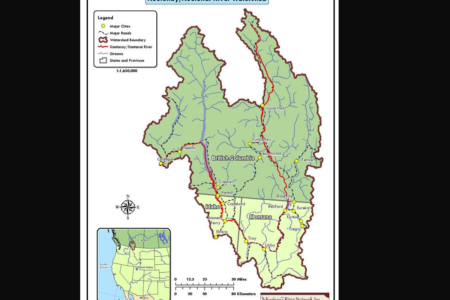Softwood Lumber Agreement Rebates Not Invested in BC
In just two years, the Softwood Lumber Agreement has cost BC’s forest industry more than half a billion dollars in new export taxes and led some companies to invest outside the province, a new study by the Canadian Centre for Policy Alternatives finds.
“Far from delivering security, the Canada-US softwood pact has seriously undermined BC’s lumber producers and hurt rural communities as they struggle through a prolonged economic slump,” says Ben Parfitt, report author and CCPA-BC resource policy analyst.
Under the Softwood Lumber Agreement (SLA), the US reimbursed approximately $4.3 billion in duties paid by Canadian companies on US-bound lumber shipments during a 54-month trade dispute. Half of that went to BC forest companies, but proved of little value to BC communities or industry workers, the CCPA study finds.
“In fact, what three BC forest companies did with a portion of their rebates was to invest in US mills,” Parfitt says. He notes that between them Canfor Corporation, West Fraser Mills and Interfor spent more than US$620 million to purchase or upgrade US sawmills.
According to Parfitt, the reason lay in the controversial export tax imposed as part of the SLA. The tax, collected by the Canadian government, applies to lumber shipments to the US in the event that lumber prices fall below certain levels or exports exceed certain volumes. Since the SLA was ratified in October 2006, the tax has cost BC companies more than $540 million.
“Without question, the taxes are better than duties – the dollars stay in Canada,” Parfitt says. “But unfortunately the taxes create an incentive for BC companies to invest outside of the province, resulting in further mill closures that devastate rural towns.”
The study concludes that BC must act, with creative policies that blunt the SLA’s negative features. Several recommendations for action are presented, with the conclusion that for the time being the province should work within the confines of the SLA in the following ways:
Encourage production of higher value forest products in BC including wood window and door frames.
Help the industry find new markets for its products outside the US.
Allocate more publicly owned forest resources to First Nations, which could then use those resources to secure business loans and/or enter into new partnerships with forest companies.
“None of these actions run counter to the SLA,” Parfitt says. “It’s high time the province actively pursued them, because the status quo clearly isn’t working.”
–submitted by CCPA

























